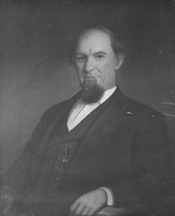A Quote by Friedrich Nietzsche
Whether in conversation we generally agree or disagree with others is largely a matter of habit: the one tendency makes as much sense as the other.
Related Quotes
One of the capabilities, which seems to be the most difficult for aspiring leaders to maste is realistic optimism. It requires one to recognize that our experience of life is largely up to us, that our situations, good or bad, are largely due to our ability on a moment-to-moment basis to capitalize on opportunity. Those that approach life as if it is largely outside of their own control, or that others are largely to blame for their circumstances, generally find growth elusive.
Many things in your life matter, but only one thing matters absolutely.It matters whether you succeed or fail in the eyes of the world. It matters whether you are healthy or not healthy, whether you are educated or not educated. It matter whether you are rich or poor - it certainly makes a difference in your life. Yes, all these things matter, relatively speaking, but they don't matter absolutely.There is something that matters more than any of those things and that is finding the essence of who you are beyond that short-lived entity, that short-lived personalized sense of self.
Whether you believe in God or not does not matter so much, whether you believe in Buddha or not does not matter so much; as a Buddhist, whether you believe in reincarnation or not does not matter so much. You must lead a good life. And a good life does not mean just good food, good clothes, good shelter. These are not sufficient. A good motivation is what is needed: compassion, without dogmatism, without complicated philosophy; just understanding that others are human brothers and sisters and respecting their rights and human dignity.
What I consistently say to young people - I say it in the United States, but I'll say it here in Germany and across Europe: Do not take for granted our systems of government and our way of life. I think there is a tendency, because we have lived in an era that has been largely stable and peaceful, at least in advanced countries, where living standards have generally gone up, there is a tendency I think to assume that that's always the case.







































